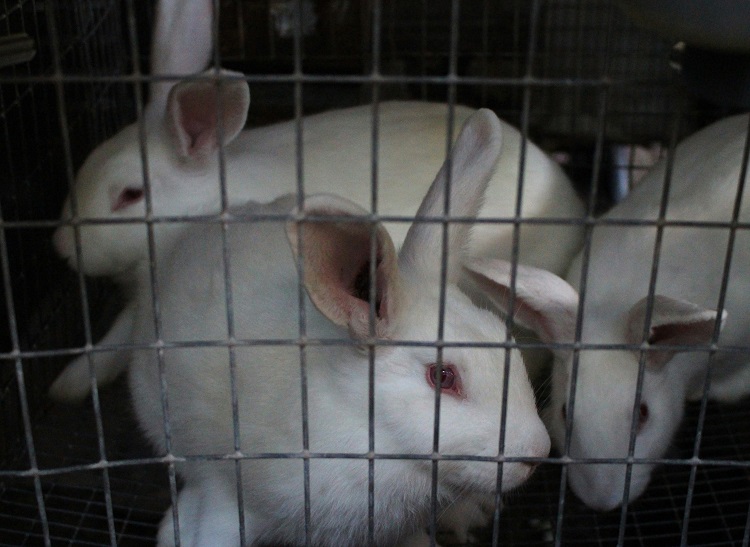Rabbit Farming Business

Type: Farming (Rabbit Farming)
Key Products for Sale:
Meat (from breeds like New Zealand White and Californian)
Fur (from breeds like Chinchilla)
Live Rabbits (for breeding or as pets)
Technology Considerations:
Utilize modern rabbit farming equipment such as wire mesh cages, automated feeders, and waterers.
Implement monitoring tools for environmental conditions in rabbit housing.
Market for the Product:
Local markets, restaurants, fur, and meat processing industries.
Key Inputs into the Business:
Materials: Rabbit cages, feed, waterers, cleaning supplies, nest boxes
Labor: Skilled rabbit farmers
Equipment: Weighing scales, transportation for rabbitsProduct Preparation Process:
Rabbit Breed Acquisition, this can be from Research centers like Kenya Agriculture and Livestock Research Organization (KALRO) and the International Livestock Research Institute (ILRI)
Rabbit Housing Setup
Feeding and Monitoring
Marketing and SalesQuality Considerations:
Ensure rabbits are raised in hygienic conditions, with proper nutrition, and humane treatment.
Cost of Investment:
Materials and Equipment:
Rabbit cages, feed, waterers, cleaning supplies, nest boxes, weighing scales, and transportation for rabbits.
Estimated Cost: KES 200,000 to KES 500,000.
Labor:
Skilled rabbit farmers.
Estimated Cost: This might vary based on the number of employees and their salaries but could range from KES 100,000 to KES 300,000.
Operational Costs:
Feed, utilities, maintenance, and other ongoing expenses.
Estimated Cost: KES 100,000 to KES 300,000 per annum.
Rabbit Breed Acquisition:
Depending on the source and quality of the rabbits, as mentioned from research centers.
Estimated Cost: KES 50,000 to KES 150,000.
Infrastructure:
Rabbit housing facilities, transportation vehicles, and storage facilities.
Estimated Cost: KES 50,000 to KES 150,000.
Regulatory Compliance and Licensing:
Costs associated with obtaining necessary licenses and permits.
Estimated Cost: KES 20,000 to KES 50,000.
Marketing and Sales:
Expenses related to marketing strategies and establishing partnerships with suppliers.
Estimated Cost: KES 30,000 to KES 100,000.
Required Operational Infrastructure:
Rabbit housing facilities
Transportation vehicles
Storage facilities for feed and products. Most Suitable or Viable Location of the Business:
Easily accessible locations with proximity to markets.
Potential Sources of Investment Capital:
Agricultural loans.
Requirements for Effective Management:
Experienced rabbit farm manager.
Role of Mobile Phone and ICT:
Use mobile phones for communication and coordination.
Pricing:
Competitive pricing based on market demand.
Profitability:
Projected profitability of KES 200,000 to KES 500,000 per annum.
Next Steps to Take:
Finalize location selection for rabbit farming.
Acquire necessary equipment and rabbit breeds.
Develop marketing strategies.
Establish partnerships with suppliers for materials.
Ensure compliance with regulations and obtain licenses.
Continuously monitor and improve farming practices.
